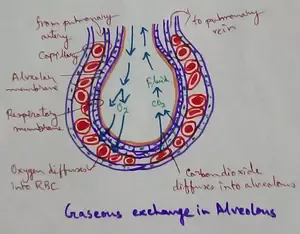Work
If force is applied to a body and it begins to move and goes to some distance, it is said ‘work is done’. When we use force to move things, we do work.
We estimate the amount of work done by a moving body by measuring the distance covered by it due to the force applied. Pushing a chair is easy but pushing a cupboard full of books is difficult. We have to use more force to move the cupboard. So we do more work in moving the cupboard than in moving the chair.
So, if the body does not move at all inspite of applying the force, we say ‘no work is done’. Thus without displacement of the body. No work is done. Work is done only when a body moves over some distance.
When a labourer drives a trolley work is done. When bullocks pull a plough in the field, they do the work. When a steam or electric engine runs a train, the engine does the work. When we press a switch and an electric fan begins to move, the work is done by the motor fitted in the fan. When birds fly in the sky, they do the work.
Thus when a body is displaced by a force, work is said to be done.
Recent Articles
-
What Is Plasma? | Blood Plasma | Proteins | Nutrients | Cholesterol
Nov 07, 25 10:29 AM
Blood is a mobile fluid which is a connective tissue and is derived from the mesoderm like cell any other connective tissue. Colour of blood is reddish and that flows inside the blood vessels by means… -
Disorders of Respiratory System | Tuberculosis | Pleurisy | Emphysema
Oct 28, 25 11:39 PM
Tuberculosis is very common disease and is caused by a type of bacteria called Mycobacterium tuberculosis. This disease causes different trouble in the respiration and infection of several parts of th… -
Regulation of Respiration | Respiratory Centres | Inspiratory Area |
Oct 14, 25 12:13 AM
Respiratory Centre is the area that controls the rate of respiration and it is observed to be located in medulla oblongata and pons. Respiratory Centre has the following will dispersed components like… -
Explain Transport of Gases | External Respiration | Tissue Respiration
Oct 09, 25 11:35 PM
In humans gaseous exchange is completed in the following ways the steps are - External Respiration or Breathing - Breathing in false taking in of Oxygen and giving out of carbon dioxide in the body. M… -
Kind and Number of Teeth | Location of Teeth in Mouth | Care of Teeth
Sep 11, 25 12:52 AM
Kind and Number of Teeth





New! Comments
Have your say about what you just read! Leave me a comment in the box below.